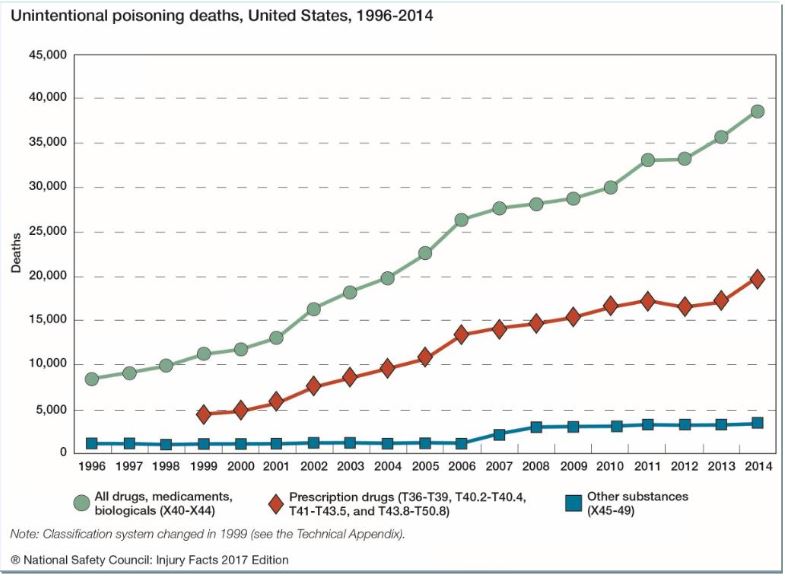More than 7 in every 10 employers say that their work place is feeling the impact of prescription drug misuse. This disturbing figure was revealed in a recent survey conducted by the National Safety Council (NSC): How the Prescription Drug Crisis is Impacting American Employers (PDF).
The survey was conducted with HR directors at a geographically representative sample of 501 U.S. employers with 50+ employees. NSC reports the key takeaways as:
- More than 70% of employers have been impacted by prescription drugs.
- 19% feel extremely prepared to deal with prescription drug misuse.
- 76% are not offering training on how to identify signs of misuse.
- 81% lack a comprehensive drug-free workplace policy.
- 41% of those who drug test all employees are not testing for synthetic opioids.
- Encouragingly, 70% would like to help employees return to work following appropriate treatment.
Why should employers care
First of all, everyone should care. Deaths from prescription drug misuse and opioids, including street drugs, are at epidemic proportions. As evidence, see the eye-opening chart that NSC chart poste in their. :

Last spring, we reported on other studies. One noted that opioid abusers cost employers nearly twice as much ($19,450) in medical expenses on average annually as non-abusers ($10,853). What’s more, nearly a third of the pain medications abused by employees were paid for by the employer.
We also posted the following stats from other studies.
- WCRI: 65 percent to 85 percent of injured workers in most states received narcotic painkillers and one in 12 injured workers who started prescription narcotics were still using them three to six months later. .
- NSC: Nearly half of users participated in a potentially unsafe activity while using an opioid – 39 percent went to work, 35 percent drove a vehicle and 14 percent operated heavy machinery.
In its recent report, NSC offers one of the most compelling reasons why employers should care:
“Employer supported and monitored treatment yields better sustained recovery rates than treatment initiated at the request of friends and family members.”
Here are the steps that the NSC recommends for employers:
- Recognize prescription drugs have a big impact on your workplace
- Put strong policies in place
- Expand drug testing panels to include opioids
- Train supervisors and employees how to spot signs of misuse
- Treat substance use problems as a disease
- Leverage Employee Assistance Programs to help employees return to work
For more, see our prior post: Prescription Drug Guidelines: What employers need to know
Reminder: Your EAP can help
As the NSC recommends, your employee assistance program can and should be an integral component of your drug abuse prevention and treatment programs. At ESI EAP, we offer a complete Drug Free Workplace and DOT Compliance Program, including substance abuse education and prevention, as well as substance abuse and addiction counseling and treatment programs. We also offer DOT compliant training for safety-sensitive workers.

